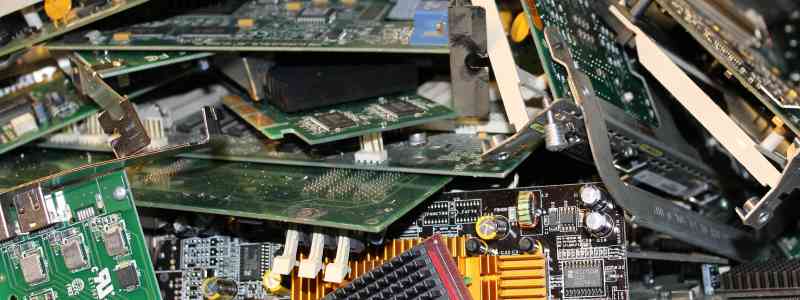There are three things certain in life: death, taxes... and the fact that today's cutting edge electronic device will become a virtual obsolete dinosaur in a couple of years. How can small business owners keep up with the tech trends while keeping money in their coffers?
Keeping your small business well-equipped with the technology it needs to both operate smoothly and remain competitive can pose a few challenges. First, you have to make sure that the electronic devices your business relies on can actually get the job done, and for some companies that may mean having the latest technology on hand. Second, if your business is operating on a tight budget then affording this equipment may be difficult since the price of some devices may make them prohibitive. And finally, you will have the problem of getting rid of any equipment that has become outdated or obsolete- something that may not be so easy given that many electronic devices have toxic chemicals and must be properly recycled.
Fortunately, small and home-based business owners do have a few options when it comes to unloading old equipment and being able to afford newer models. Of course, the best program for your business will really depend on your specific needs. Here is a rundown of the top four options:
1. Retail buy-back programs.Many electronics retailers and online merchants such as BestBuy, Radio Shack, and CompUSA offer buy-back programs to their customers. Typically, you will be required to pay an upfront fee to enroll in the program that varies by device. You will then receive either in-store credit or cash ranging between 10% to 50% of the original retail price. The actual amount you will be eligible to receive is based on the age of the item and its condition.
Though it may seem like a quick and easy way to unload older equipment and purchase newer models, many consumer groups are not so supportive of these buy-back programs since they are often fraught with numerous requirements and restrictions that end up bringing little value to the customer.
But some small businesses may still benefit. You may want to consider a retail buy-back program if your business depends on the latest technology, and you plan on upgrading your equipment every six months to a year and/or you do not have the time nor the resources needed to sell the used equipment yourself.
2. Online auction and classified sites.If you want to get a better return for your used electronic equipment and you can spare the time, you should consider listing your items on sites such as eBay, Craigslist, or any other locally-based online classifieds. It may be particularly worthwhile to do this if your equipment is in relatively good condition and there is a significant demand for it in the secondary market. This may be the best option for businesses that are very small or home-based.
3. Companies that buy and/or sell used electronics. If you don't want the hassle of listing your equipment on online auctions or classified sites and don't want to worry about shipping the device or organizing a pickup with the buyer, but you still want a good value for your used equipment, there are other options. Below is a list of online companies that buy and/or sell and recycle used electronic equipment. The first two offer third party buy-back programs, while the rest are independently focused:
- TechForward- A third party buy-back program; it requires an upfront fee to participate.
- CExchange- Retail electronics trade-in and recycling programs
- DigiCircle- Buy or sell used equipment
- BuyMyTronics- Sell your used and even broken devices
- YouRenew- Sell or recycle your equipment
- MacofAllTrades- Buy or sell used Mac Computers and devices
- Gazelle- Sell or recycle your used electronics
4. Sometimes it just pays to lease. One final option that may be good for your small business is to avoid dealing with buying and selling used equipment altogether and instead opt for an upgrade equipment lease and then trade-in your equipment for an upgrade when the term of the lease comes to an end. Like the first option, this may be a good choice if your business needs to have the most cutting edge equipment, but is constrained by a tight budget. It may also be a good option if you are not tech savvy enough in the first place to know when it is appropriate to go for an upgrade.
Note:If you plan on selling or recycling any electronic devices that held sensitive data, you should make an effort to adequately delete this information. Cell phones typically have a data "wipe out" option. If you can't find it, then contact your retailer or search online for your phone's specific make and model and get instructions.
If you will be getting rid of a computer or laptop then you need to permanently erase the hard drive and "shred" any sensitive files. Two free programs to start out with are Darik's Boot and Nuke and Secure Delete by Object Media.
In short, if you are a frugal entrepreneur or small business owner who depends on up-to-date technology to effectively run your business, you can still get the equipment you need without breaking the bank.
